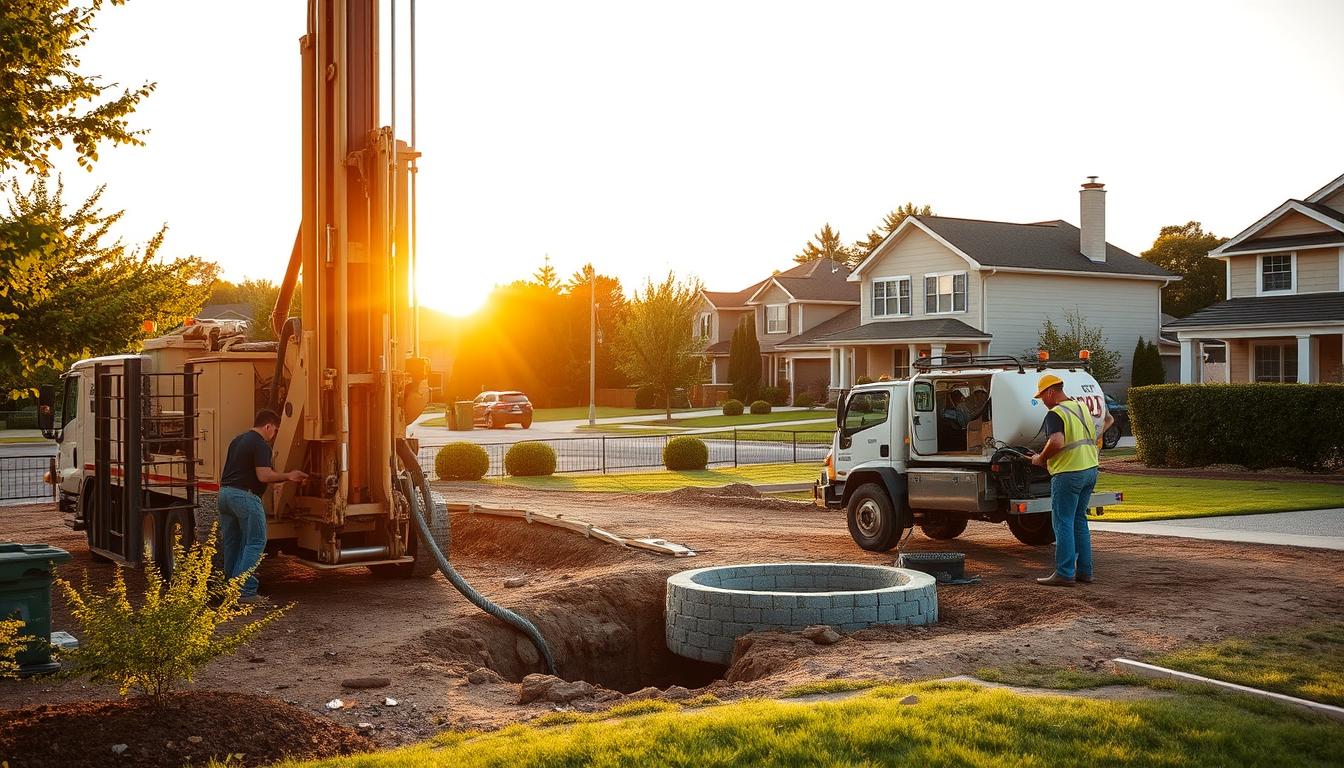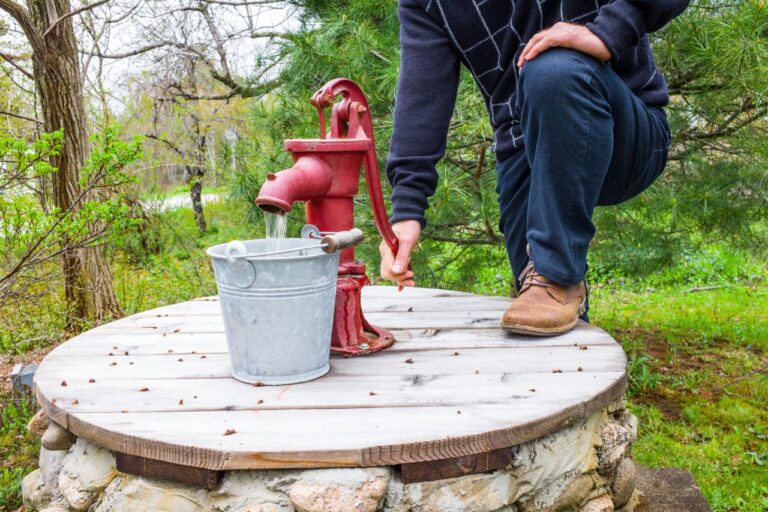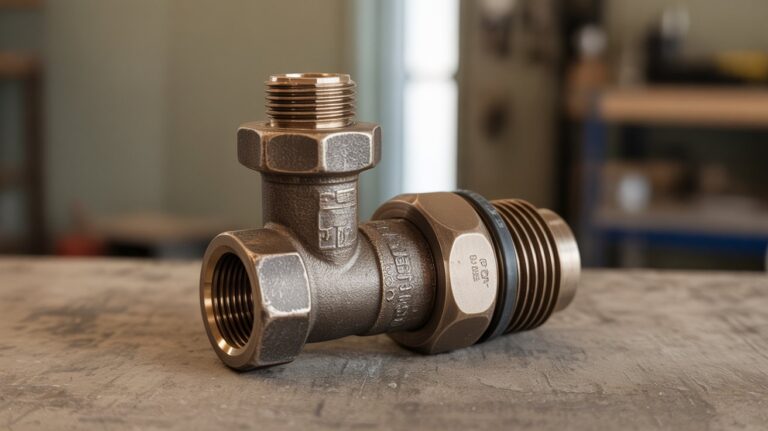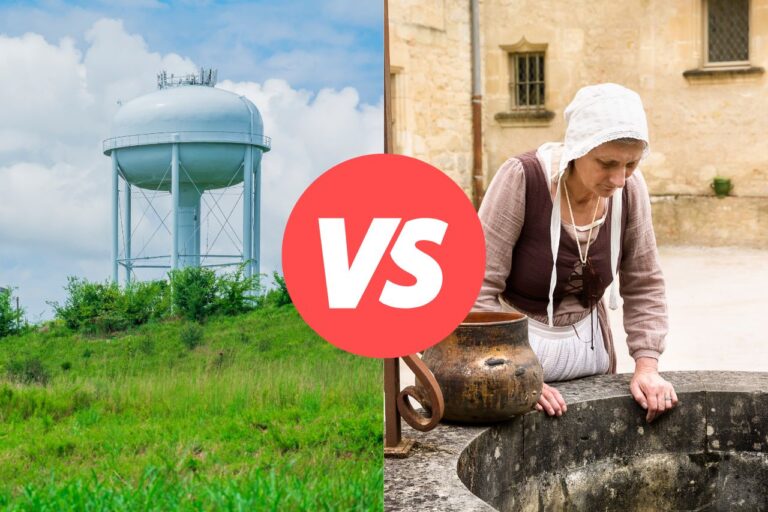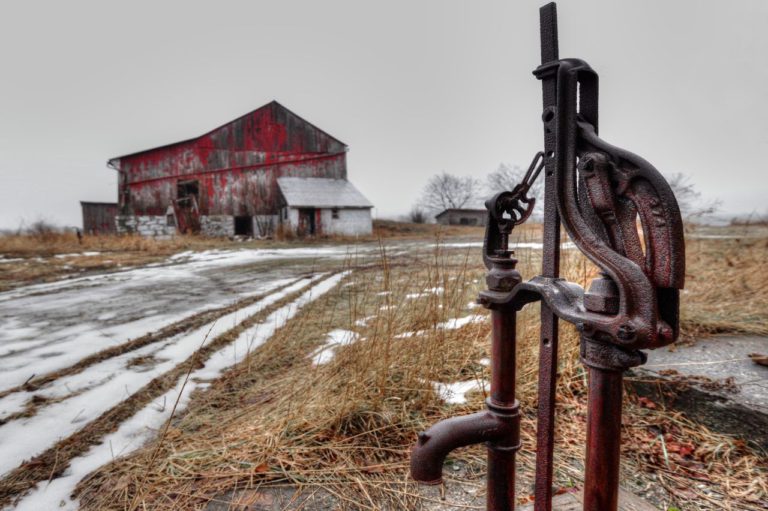Discover Reliable Water Well Drilling Contractors Near You
Are you tired of relying on municipal water supplies and concerned about the rising costs of your monthly water bills? Having a private water well can be a game-changer, providing a continuous and clean water supply right on your property.
Reliable water well drilling contractors are crucial in making this a reality. They ensure that your water well is drilled and maintained properly, providing peace of mind and significant cost savings over time.
With the right contractor, you can enjoy the benefits of a private water well, including uninterrupted water supply and reduced water bills. So, what makes a water well drilling contractor reliable, and how can you find one near you?
Key Takeaways
- Understand the importance of a reliable water supply
- Learn how a private water well can save on water bills
- Discover the role of water well drilling contractors
- Identify key factors in selecting a reliable contractor
- Find out how to locate the best water well drilling companies near you
The Importance of Professional Water Well Drilling
Professional water well drilling is a critical step in securing a reliable source of clean water for homes and businesses. A well-drilled water well can provide numerous benefits, making it a valuable investment for those seeking water independence.
Benefits of Having Your Own Water Well
Having your own water well offers several advantages. Two significant benefits include:
- Cost Savings Over Time: By having your own water well, you can significantly reduce your water bills over time, making it a cost-effective solution.
- Water Quality Control: With your own well, you have control over the water quality, ensuring it’s safe and clean for consumption.
Risks of Improper Well Installation
However, improper well installation can lead to significant risks. It’s crucial to be aware of these risks when considering drilling a water well.
- Contamination Concerns: Poorly installed wells can be susceptible to contamination, posing serious health risks.
- System Failures and Repairs: Improper installation can also lead to system failures, requiring costly repairs.
To avoid these risks, it’s essential to hire licensed Water Well Drilling companies that adhere to safety and construction standards. By doing so, you can ensure your water well is drilled professionally, providing a reliable source of clean water for years to come.
Understanding Water Well Systems
Understanding the nuances of water well systems, including their types and components, is vital for homeowners relying on well water. A well-designed water well system is crucial for ensuring a reliable and clean water supply. “A well is more than just a hole in the ground; it’s a complex system that requires careful planning and execution,” as emphasized by experts in the field.
Types of Water Wells
There are several types of water wells, each suited to different geological conditions. The primary types include drilled, driven, and dug wells.
Drilled Wells
Drilled wells are the most common type, especially in areas with deep water tables. They are constructed using drilling rigs that can reach considerable depths.
Driven Wells
Driven wells are simpler and less expensive, typically used in areas where the water table is relatively close to the surface. They involve driving a pipe into the ground until it reaches the water-bearing formation.
Dug Wells
Dug wells are among the oldest types, constructed by excavating a large diameter hole into the ground until water is reached. They are more susceptible to contamination and are less common in modern times.
Components of a Well System
A well system consists of several critical components that work together to provide a reliable water supply.
Pumps and Pressure Tanks
Pumps are essential for bringing water from the well to the surface. Pressure tanks store water under pressure, ensuring a consistent supply.
Casings and Screens
Casings provide structural integrity to the well, preventing collapse, while screens allow water to enter the well from the surrounding aquifer, filtering out sediment.
By understanding the different types of water wells and their components, homeowners can better appreciate the complexity of water well systems and the importance of professional Water Well Drilling services. Whether you’re looking for “Water Well Drilling companies near me” or the “best Water Well Drilling Contractors,” it’s crucial to consider the specific needs of your property and the local geological conditions.
How to Find a Water Well Drilling Contractor
Locating a reliable water well drilling contractor is a crucial step in ensuring a successful well installation project. With numerous contractors available, the task can seem daunting, but by leveraging the right resources and strategies, you can identify a competent professional for your needs.
Online Resources and Directories
The internet is a valuable tool in your search for a water well drilling contractor. Utilize online directories and specialized platforms that connect customers with licensed and experienced contractors.
- Industry-Specific Websites: Websites dedicated to water well drilling can provide a list of contractors in your area. These sites often vet contractors, ensuring they meet certain standards.
- Review Platforms: Platforms that allow customers to review services can offer insights into a contractor’s reliability and quality of work. Look for contractors with consistently positive reviews.
Referrals and Recommendations
Personal referrals can be a powerful way to find a trustworthy contractor. Ask neighbors, friends, or real estate professionals for recommendations.
- Neighbor and Community Insights: Neighbors who have recently had a well drilled can provide firsthand information about their experience with local contractors.
- Real Estate Professional Networks: Real estate agents often have a network of reliable service providers, including water well drilling contractors.
Industry Associations
Industry associations can be a valuable resource in finding a qualified contractor. They often provide directories of members who are licensed and experienced.
- National Ground Water Association: As a prominent industry association, the NGWA offers a directory of members who are professionals in water well drilling.
- State-Level Organizations: Many states have their own groundwater associations or organizations that list certified contractors.
By combining these strategies, you can compile a list of potential contractors to consider for your project. Ensure that you vet each contractor thoroughly to find the best fit for your needs.
Essential Qualifications to Look For
To ensure a water well drilling project is done correctly, verifying the contractor’s qualifications is essential. This step is crucial for the success and safety of your project.
Licensing and Certification Requirements
A reputable water well drilling contractor must possess the necessary licenses and certifications. This includes state-specific credentials, which vary by location, ensuring compliance with local regulations.
State-Specific Credentials
Contractors should have credentials that are recognized by their state’s regulatory agency. For more information on selecting a qualified contractor, you can refer to resources like this guide.
Continuing Education
It’s also important that contractors commit to continuing education, staying updated on the latest technologies and regulatory requirements.
Insurance and Bonding
Adequate insurance and bonding are critical for protecting you and your workers in case of accidents or property damage.
Liability Coverage
Liability coverage is essential for covering damages to your property or neighboring properties during the drilling process.
Worker’s Compensation
Ensure the contractor has worker’s compensation insurance to cover their employees in case of work-related injuries.
Experience and Specialization
The contractor’s experience and specialization are vital indicators of their capability to handle your project effectively.
Years in Business
A contractor with many years in business is likely to have encountered and solved a variety of challenges.
Specialized Expertise
Look for contractors with specialized expertise in water well drilling, as they are more likely to deliver high-quality results.
Questions to Ask Potential Well Drilling Contractors
When searching for a reliable water well drilling contractor, it’s essential to ask the right questions to ensure you’re hiring a competent professional. This due diligence helps in assessing their suitability for your project and avoiding potential pitfalls.
Experience and Project History
Understanding a contractor’s experience and past projects can provide valuable insights into their capabilities. You should inquire about:
Similar Projects Completed
Ask about the types of water well drilling projects they have completed, especially those similar to yours. This can indicate their familiarity with your specific needs.
Success Rate in Your Area
Inquire about their success rate with projects in your area, as local experience can be crucial due to varying geological conditions.
Technical Approach and Equipment
The technical approach and equipment used by a contractor can significantly impact the quality and efficiency of the drilling process.
Drilling Methods Used
Different drilling methods are suited to different geological formations. Ask about the methods they use and why.
Modern vs. Traditional Equipment
Find out if they use modern or traditional equipment. Modern equipment might offer more efficiency and precision, but traditional methods might be more cost-effective in certain situations.
Timeline and Logistics
Understanding the project timeline and logistics is crucial for planning and budgeting.
Project Duration Estimates
Request detailed estimates of how long the project is expected to take, including any factors that could influence the timeline.
Potential Delays and Solutions
Ask about potential delays and the solutions they have in place to mitigate such issues. This shows their preparedness and ability to handle unforeseen challenges.
By asking these questions, you can gain a comprehensive understanding of a contractor’s capabilities and make an informed decision when selecting a licensed Water Well Drilling company or an experienced Water Well Drilling contractor near you.
As emphasized by industry experts, “Asking the right questions can help you assess a contractor’s suitability for your project.” This proactive approach ensures that you hire a competent professional who can meet your water well drilling needs effectively.
Understanding the Well Drilling Process
Water well drilling is a multifaceted process that demands careful planning and execution. It involves several stages, from initial site assessment to the final well development and completion, typically carried out by professional Water Well Drilling services.
Site Assessment and Planning
Before drilling begins, a thorough site assessment is conducted. This includes geological surveys to determine the subsurface conditions and identify potential water-bearing formations.
Geological Surveys
Geological surveys play a crucial role in understanding the subsurface geology. These surveys help in identifying the most suitable location for drilling, ensuring a higher success rate for the well.
Property Considerations
Property considerations, such as land topography and accessibility, are also evaluated during the site assessment phase. This ensures that the drilling process is feasible and safe.
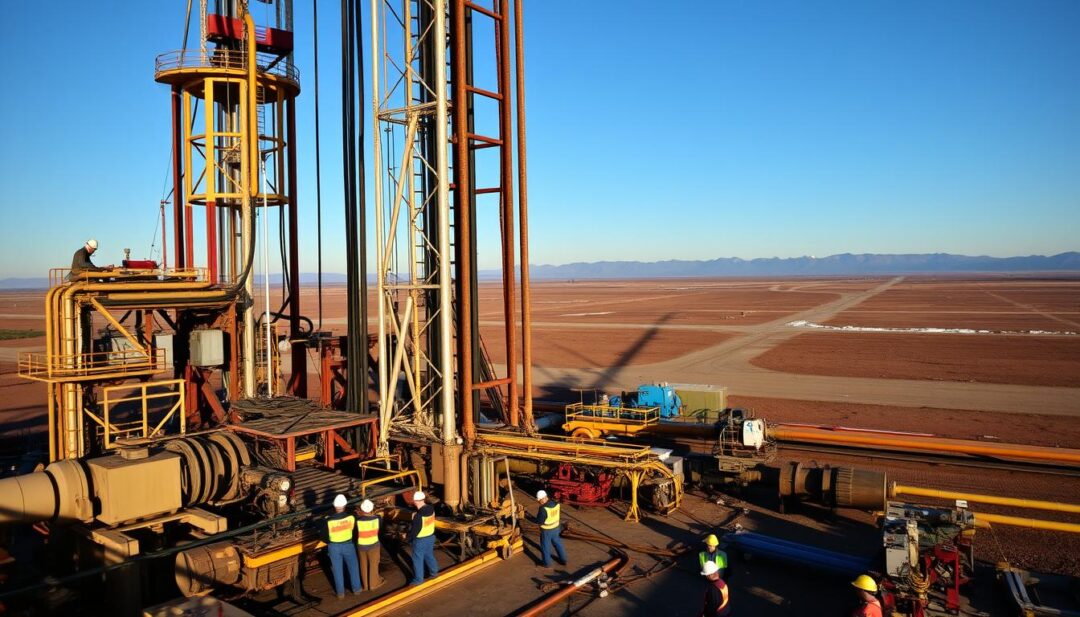
Drilling Methods and Equipment
Top-rated Water Well Drilling companies utilize various drilling methods and equipment based on site conditions and the type of well being constructed. Two common drilling methods are rotary drilling and cable tool drilling.
Rotary Drilling
Rotary drilling is a widely used method that involves rotating a drill bit to penetrate the ground. It’s effective for a variety of geological formations.
Cable Tool Drilling
Cable tool drilling, on the other hand, uses a heavy drilling bit that is repeatedly lifted and dropped to crush the rock. This method is particularly useful in certain geological conditions.
Well Development and Completion
Once drilling is complete, the well is developed and completed by Water Well Drilling contractors. This involves casing installation to stabilize the well and pump selection and setup to ensure efficient water extraction.
Casing Installation
Casing installation is critical for maintaining the structural integrity of the well and preventing contamination.
Pump Selection and Setup
The selection and setup of the pump are crucial for the efficient operation of the well. The pump must be appropriately sized for the well’s yield and the intended water usage.
Cost Factors for Water Well Drilling
Understanding the costs associated with water well drilling is crucial for homeowners and businesses looking to invest in a reliable water source. The expense can vary widely based on several factors.
Average Pricing Across Different Regions
The cost of drilling a water well can differ significantly from one region to another. Factors such as geology and local regulations play a crucial role.
Urban vs. Rural Considerations
Drilling in urban areas can be more complex and costly due to access restrictions and potential underground infrastructure. In contrast, rural areas might have fewer obstacles but could require longer piping and more complex logistics.
Regional Price Variations
Prices can fluctuate based on local demand, geology, and the availability of drilling contractors. For instance, areas with hard rock formations may require specialized equipment, increasing costs.
Factors That Affect Well Drilling Costs
Several key factors influence the overall cost of well drilling. Understanding these can help in budgeting.
Depth Requirements
The deeper the well, the higher the cost due to the need for more materials and potentially more complex drilling techniques.
Soil and Rock Conditions
Difficult soil or rock conditions can necessitate specialized drilling equipment, thereby increasing costs.
Hidden Costs to Watch For
Beyond the initial drilling cost, there are other expenses to consider.
Permit Fees
Obtaining the necessary permits can add to the overall expense. These fees vary by jurisdiction.
Water Testing and Treatment
Ensuring the water is safe to use may require testing and treatment, adding to the overall cost.
| Cost Factor | Average Cost | Range |
|---|---|---|
| Drilling | $15,000 | $10,000 – $20,000 |
| Permit Fees | $500 | $200 – $1,000 |
| Water Testing/Treatment | $300 | $100 – $500 |
By understanding these cost factors, individuals can better plan for the expenses associated with water well drilling, ensuring they find affordable and licensed Water Well Drilling Contractors near them.
Evaluating Quotes from Well Drilling Companies
To find the top-rated Water Well Drilling companies, you need to know how to assess their quotes effectively. Evaluating quotes from well drilling contractors is a critical step in selecting the right professional for your water well drilling needs.
What Should Be Included in a Quote
A comprehensive quote should include itemized services and materials specifications. Itemized services help you understand what you’re paying for, while materials specifications ensure that the contractor uses the right quality and type of materials for your well.
Itemized Services
Itemized services provide a clear breakdown of the work to be done, including drilling, casing installation, and well development.
Materials Specifications
Materials specifications should detail the type and quality of materials used, such as the casing material and well screen.
Red Flags in Contractor Proposals
Be cautious of vague pricing structures and unusually low bids, as these can be indicators of potential issues.
Vague Pricing Structures
Quotes with vague pricing structures can lead to unexpected costs down the line.
Unusually Low Bids
Bids that are significantly lower than others may indicate a lack of experience or intent to cut corners.
Comparing Bids Effectively
To compare bids effectively, consider creating comparison spreadsheets and conducting a value vs. cost analysis.
Creating Comparison Spreadsheets
Spreadsheets help organize the information from different quotes, making it easier to compare them side by side.
Value vs. Cost Analysis
This analysis involves weighing the cost against the value offered by each contractor, considering factors like experience and materials quality.
Water Well Regulations and Permits
Water well drilling is a highly regulated industry, with various state and local regulations governing the process. Compliance with these regulations is crucial for ensuring that your well is drilled and operated legally and safely.
State and Local Requirements
Different states and local governments have their own set of regulations regarding water well drilling. These regulations can include licensing requirements for drillers, permits for drilling, and standards for well construction.
Permit Application Process
The permit application process typically involves submitting detailed plans and specifications for the proposed well, including its location, depth, and casing requirements. Licensed Water Well Drilling companies are familiar with these requirements and can assist in preparing the necessary documentation.
Setback Requirements
Setback requirements dictate the minimum distance that a well must be from potential sources of contamination, such as septic systems or agricultural runoff. These requirements vary by jurisdiction but are critical for protecting groundwater quality.
Environmental Considerations
Water well drilling must be done in a way that minimizes environmental impact. This includes protecting aquifers and preventing contamination.
Aquifer Protection
Aquifers are underground layers of permeable rock or soil that contain significant amounts of water. Protecting these aquifers from contamination is essential for maintaining groundwater quality.
Contamination Prevention Measures
Measures to prevent contamination include proper well casing and sealing, as well as adherence to setback requirements. Regular testing of well water can also help identify any potential contamination issues early.
| Regulation Type | Description | Importance |
|---|---|---|
| Licensing Requirements | Ensures drillers meet state standards | High |
| Permit Requirements | Ensures compliance with local regulations | High |
| Setback Requirements | Protects wells from contamination sources | High |
“Regulations are in place to protect not just the environment, but also the consumer. Ensuring that water well drilling is done correctly is crucial for public health.”
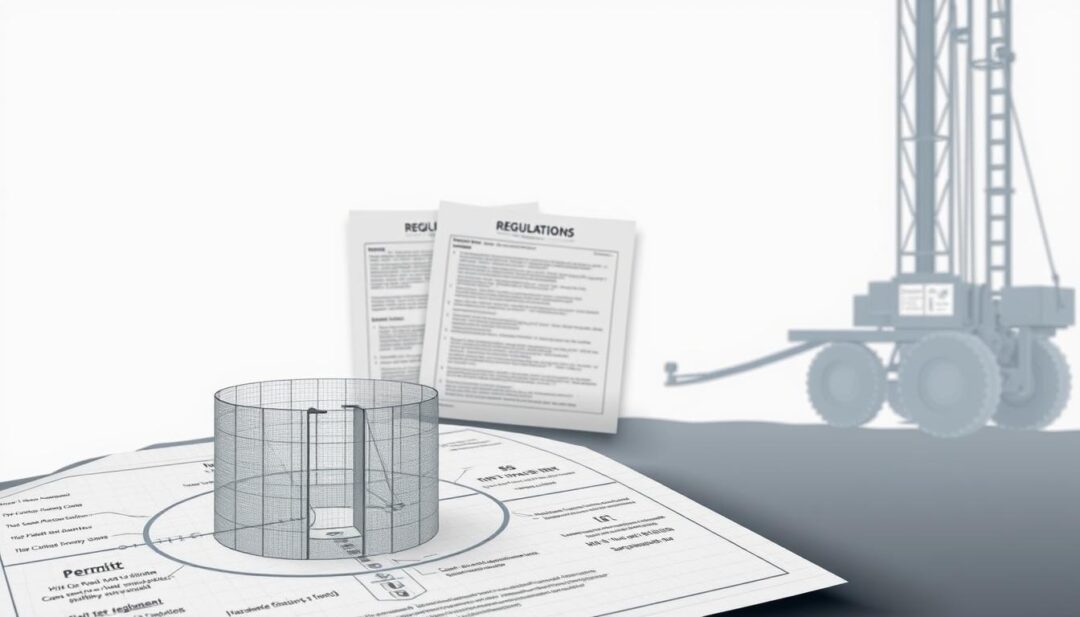
Maintenance Services Offered by Well Drilling Contractors
To maintain the efficiency and safety of your water well, it’s crucial to understand the maintenance services offered by well drilling contractors. Regular maintenance is essential for the longevity and optimal performance of your well.
Routine Maintenance Requirements
Routine maintenance is vital to prevent issues and ensure your well operates effectively. This includes:
Annual Inspections
Annual inspections help identify potential problems before they become major issues. These inspections typically involve checking the well’s mechanical components and assessing its overall condition.
Water Quality Testing
Regular water quality testing is necessary to ensure the water remains safe for consumption. This involves analyzing the water for various contaminants and parameters.
Repair and Rehabilitation Services
When issues arise, repair and rehabilitation services become necessary. This can include:
Pump Replacement
The well pump is a critical component, and its failure can lead to significant disruptions. Professional contractors can replace pumps efficiently.
Well Cleaning and Redevelopment
Over time, wells can become clogged or less efficient. Cleaning and redevelopment services can restore the well’s original performance.
Service Contracts and Warranties
Many well drilling contractors offer service contracts and warranties that provide peace of mind and protect your investment.
Coverage Terms
Understanding the terms of your service contract or warranty is crucial. This includes knowing what is covered and for how long.
Emergency Service Availability
Having access to emergency services can be invaluable in case of unexpected failures or issues.
Signs of a Reliable Water Well Drilling Contractor
Identifying the right water well drilling contractor involves looking for key indicators of reliability and professionalism. A reliable contractor is crucial for a successful well installation project.
Communication and Transparency
Effective communication is vital in any construction project, including water well drilling. A reliable contractor should maintain open lines of communication, ensuring that clients are informed throughout the project.
Clear Documentation
Clear and detailed documentation is essential for transparency. This includes providing comprehensive quotes, contracts, and progress reports.
Responsive Customer Service
A reliable contractor should offer responsive customer service, addressing any questions or concerns promptly.
Quality of Equipment and Materials
The quality of equipment and materials used can significantly impact the longevity and efficiency of the well system.
Industry-Standard Components
Using industry-standard components ensures that the well system is built to last and meets regulatory requirements.
Durability Considerations
A reliable contractor should consider durability when selecting materials and equipment, ensuring the well system’s longevity.
Post-Installation Support
Post-installation support is a critical aspect of a reliable contractor’s service, ensuring that the well system operates smoothly after completion.
Training for Homeowners
Providing training for homeowners on the maintenance and operation of the well system is essential for its longevity.
Troubleshooting Assistance
A reliable contractor should offer troubleshooting assistance to address any issues that may arise after installation.
| Signs of Reliability | Description | Benefits |
|---|---|---|
| Clear Documentation | Detailed quotes and contracts | Transparency and trust |
| Responsive Customer Service | Prompt addressing of questions and concerns | Reduced stress and anxiety |
| Industry-Standard Components | Use of high-quality materials and equipment | Longevity and efficiency of the well system |
Conclusion: Securing Your Water Future with the Right Contractor
Securing a reliable water well drilling contractor is crucial for a successful well drilling project. By understanding the importance of professional drilling and knowing how to find the best Water Well Drilling Contractors, you can ensure a reliable water supply.
To find the right contractor, start by searching for Water Well Drilling companies near me or utilize online resources to get quotes from multiple contractors. Evaluating their qualifications, experience, and customer reviews will help you make an informed decision.
By following the steps outlined in this article, you can confidently identify a reliable contractor who meets your needs. This ensures a successful well drilling experience and a sustainable water future.
When searching for how to find a Water Well Drilling Contractors, remember to assess their licensing, insurance, and experience. This thorough approach will help you secure the best Water Well Drilling Contractors for your project.

